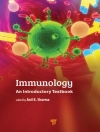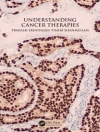This book provides a clear and concise guide to hypermobility in medicine and physiotherapy. Each chapter is written with a uniform style, including illustrations highlighting the clinical characteristics of manifestations related to hypermobility. Key topics are comprehensively covered throughout the book in the context of both medicine and physiotherapy.
This book offers supportive information for practitioners who are seeking as single resource on the topic. Medical professionals, physiotherapists, physical educators, psychologists, nutritionists, occupational therapists, psychomotor therapists, and postgraduate students will find this book to be an essential guide in their daily clinical practice and research in the field.
Tabla de materias
1. Contributors to the understanding of the EDS and Hypermobility in Antiquity.- 2. Contributors to the understanding of Hypermobility and Ehlers-Danlos Syndrome in the Modern Era.- 3. Assessment of the Magnitude of Joint Hypermobility.- 4. The Heterogeneity of Joint Hypermobility.- 5. Biomechanical Aspects of Joint Hypermobility.- 6. Mechanical Consequences of Joint Hypermobility.- 7. Ehlers-Danlos syndromes.- 8. Joint Hypermobility Syndrome and Hypermobility Spectrum Disorders.- 9. Joint Hypermobility in Different Periods of Life; An Overview.- 10. Joint Hypermobility in Newborns and Children.
Sobre el autor
Neuseli Lamari is Associate Professor in Health Sciences and Professional of Physiotherapy (PT) at the Faculty of Medicine of São José do Rio Preto (FAMERP), Brazil (1994). She obtained her undergraduate degree in Physiotherapy at the Methodist University of Piracicaba, Brazil, in 1981, followed by a master’s degree, FAMERP, in 1994, her Ph.D. in Health Sciences, FAMERP, in 2000 and Senior Lecturer (Livre-Docente) in physiotherapy by the FAMERP, Brazil (2009).
She founded the PT Service at the Hospital de Base (HB) in São José do Rio Preto in 1984. In 1991, she implemented the Professional Improvement Course in PT at HB and the Advanced Training Course in Physiotherapy at FUNFARME. She started the first Multiprofessional Residency Program (MRP) in Physical Rehabilitation (PR) in Brazil (2013) and has 40 years of extensive experience in the PT field with an emphasis on Joint Hypermobility (JH) and Ehlers-Danlos Syndromes (EDS).
As a recognized Brazilian expert in Hypermobility and Ehlers-Danlos Syndromes, she has given numerous interviews to the spoken and written media, including the highest-rated national networks. She is the author or the co-author of 40 full articles published in medical journals, and she has also published a book and 38 articles in newspaper and magazines. She is also the general coordinator of the MRP in PR and responsible for the implementation, technical assistance and teaching in the public health service of the only JH and EDS Outpatient Clinic in Brazil.
Peter Beighton was appointed as the professor of Human Genetics at the Faculty of Medicine, University of Cape Town, in 1972, and from 1983 to 1998, he was also the director of the SA MRC Unit for Medical Genetics. He is a fellow and a former vice president of the Royal Society of South Africa and a former chairman of the South African Human Genetics Society.
Prof. Beighton’s research has involved inherited disorders of the skeleton and connective tissues, together with genetic conditions which cause deafness, physical disability and visual handicap. In the early stages of his career, he received the Fulbright and Oppenheimer fellowships, and his contributions were subsequently recognized by the award of the Gold Medal of the British Orthopaedic Association, the President’s Medallion of the SA Orthopaedic Association, the Smith & Nephew Literary Award and the Silver Medal of the SA Medical Research Council. He has also been accorded the fellowships of the University of Cape Town and the British Society of Rheumatology. In 1999, he obtained the degree of Master of Philosophy in History at the University of Lancaster, UK. In 2002, he received the Order of Mapungubwe in Bronze from President TM Mbeki for outstanding achievements in medical genetics. He remained active at UCT with the status of senior scholar, finally retiring in 2022, at the age of 87 years. Prof. Beighton is also the author (Beighton et al, 1973) of the scoring method for the characteristic of generalized joint hypermobility, known in the specialized scientific literature until then as “Beighton Score.”












